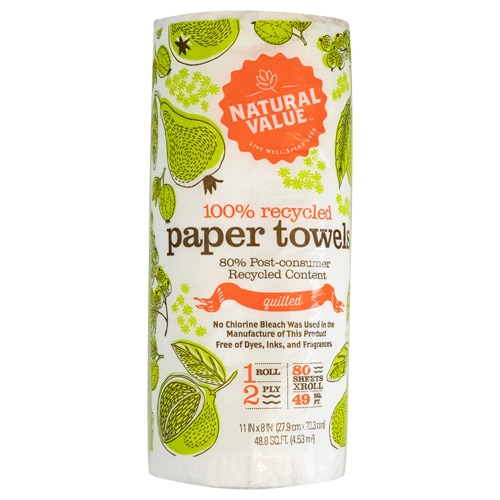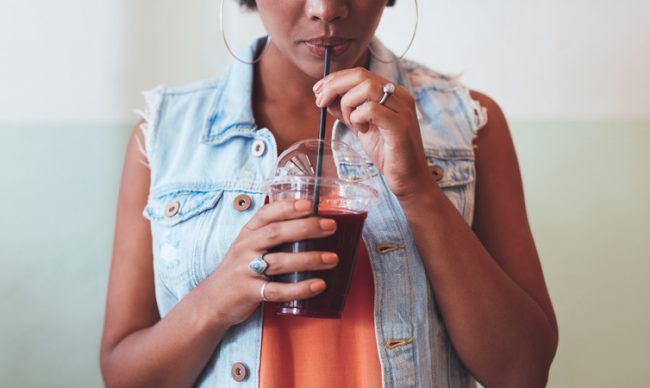Convenience is a good servant but a bad master. We don’t question our obedience to the dictates of disposable, one-use products as much as we should—rather we take plastic cups, water bottles and sticky notes as our birthright. The convenience of these items comes at a cost, however.
According to One Green Planet, the average American throws away approximately 185 pounds of plastic a year, much of which ends up in the ocean. If everyone in the U.S. renounced plastic, it would keep over 555 billion pounds of plastic out of landfills and oceans.
So we know the environment is in perilous shape. Scientists predict we are fast approaching a tipping point, that once crossed, would lead to hastened and largely unpredictable environmental degradation. The widely cited critical threshold occurs once more than 50 percent of a given ecological system is disrupted, a point we are expected to reach in this country by 2025.
How can we correct these minor habits that cumulatively do so much harm? By paying attention to the small things. Avoiding these four habits adds up to big changes.
1. Using single-use disposables
The smaller the serving, the higher the cost and more packaging waste. Instead of choosing single-serving items, opt for bulk options that you then divvy out yourself (using reusable snack bags or tins). Juice boxes, for example, are a prime offender: the composite packaging contains three to six layers of paper, polyethylene plastic and aluminum that takes 300 years to disintegrate, according to PBS Kids. A forward-thinking Toronto elementary school recently banned juice boxes from students’ lunches. In a letter sent home, parents were told to pack litterless lunches with reusable containers and water bottles.
Try instead: Instead of juice boxes, pack kids fruit and then just stick with plain water. Juice is filled with unnecessary sugar, often sweeter than soda, and offers no real nutritional value or fiber. To replace other single use disposable, like prepackaged bags of chips, buy a big bag and then put a ration of chips in a reusable snack bag or reusable containers.
2. Using plastic straws
500 million straws per day is an average of 1.6 straws per person (in the US) per day. Roughly speaking, over a lifetime, each person in the U.S. will use approximately 38,000 or more straws. Not only are they unnecessary and wasteful, discarded plastic straws pose an environmental hazard for marine life—and there are several movements afoot that want to end their use altogether. (A video of a straw wedged in the nose of a sea turtle on YouTube put an unforgettable face to the issue.)
Try instead: Do you really need to use a straw in the first place? They are a wee bit of a lazy indulgence for most of us. If you love straws, invest in a glass or stainless-steel version that are both elegant and durable. If you can't resist, opt for biodegradable straws.
3. Using paper towels
In the US, 2 percent of total landfill consists of paper towels. One way to break our nation’s infatuation with paper towels is by going paperless in the kitchen. Eschew paper towels and napkins in favor of sponges, rags and cloth napkins. If you are tempted to cheat by using recycled paper towels, that won’t get you off the hook. According to scientists at MIT, “the environmental impact of recycled towels equals that of virgin paper towels in a number of environmental measures, including CO2 emissions and water consumption.”
Try instead: One of the places where paper towel use is sanctioned is in public restrooms. Next time you’re out and about, opt for the high-speed hand dryer. Better yet, advance to the expert environmental champion by giving your hands a quick shake and wiping them off on your pants.
4. Using plastic produce bags
If you thought 300 years was a long time for a juice box to biodegrade, get this: It takes 1,000 years for a plastic bag to decompose. In the US, we go through an estimated 100 billion single-use plastic bags every year. While most people have gotten in the habit of carrying around reusable grocery bags, plastic produce bags are still considered a legitimate evil when shopping for fruits and vegetables. But consider that if you use a minimum of four bags for different produce on every trip to the grocery store, at least 200 plastic bags are added to the land fill every year.
Try this: Invest in mesh produce bags that can be washed and reused. For some reason, it’s harder to make this a habit, so you might want to keep a few handy in your purse until it becomes a part of your routine.
Editor's note: For more tips and tricks for avoiding single-use items and reducing food waste, join the Zero Hunger, Zero Waste initiative.




